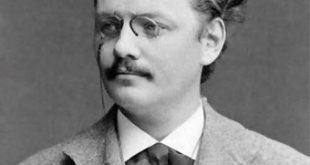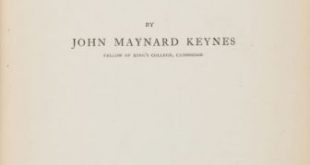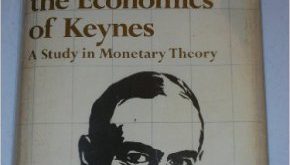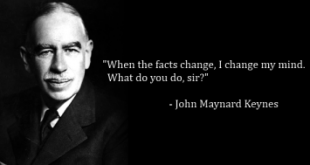On the limits of the invisible hand [embedded content] It might look trivial at first sight, but what Harold Hotelling did show in his classic paper Stability in Competition (1929) was that there are cases when Adam Smith’s invisible hand doesn’t actually produce a social optimum. With the advent of neoclassical economics at the end of the 19th century a large amount of intellectual energy was invested in trying to formalize the stringent conditions of...
Read More »David K. Levine — unlucky when trying to think
David K. Levine — unlucky when trying to think In the wake of the latest financial crisis many people have come to wonder why economists never have been able to predict these manias, panics and crashes that haunt our economies. In responding to these warranted wonderings, some economists – like professor David K. Levine in the article Why Economists Are Right: Rational Expectations and the Uncertainty Principle in Economics in the Huffington Post – have...
Read More »Per Svensson — ännu en av dessa antidemokratiska demokrater
Inför brexit-omröstningen var det få kommentatorer som ondgjorde sig över att man i Storbritannien valt att låta medborgarna i en folkomröstning tala om huruvida man ville stanna kvar i EU eller ej. För de flesta framstod detta lika självklart som att Sverige för lite mer än tio år sedan folkomröstade om vi ville vara med i EMU eller ej. Men när väl det — för de flesta — överraskande resultatet av brexit-omröstningen stod klart blev det andra tongångar. När ‘folket’ inte valde...
Read More »L’urne que nous interrogeons
L’urne que nous interrogeons In my judgment, the practical usefulness of those modes of inference, here termed Universal and Statistical Induction, on the validity of which the boasted knowledge of modern science depends, can only exist—and I do not now pause to inquire again whether such an argument must be circular—if the universe of phenomena does in fact present those peculiar characteristics of atomism and limited variety which appear more and more...
Read More »On tour (personal)
Touring Germany yours truly also had time to visit son completing law studies at Heidelberg University. Amazingly beautiful town.
Read More »Critical inspiration
Almost a century and a half after Léon Walras founded neoclassical general equilibrium theory, economists still have not been able to show that markets move economies to equilibria. What we do know is that — under very restrictive assumptions — unique Pareto-efficient equilibria do exist. But what good does that do? As long as we cannot show, except under exceedingly unrealistic assumptions, that there are convincing reasons to suppose there are forces which lead economies to...
Read More »Axel Leijonhufvud on why economics has become so boring
Axel Leijonhufvud on why economics has become so boring [embedded content]Trying to delineate the difference between ‘New Keynesianism’ and ‘Post Keynesianism’ — during an interview a couple of months ago — yours truly was confronted by the odd and confused view that Axel Leijonhufvud was a ‘New Keynesian.’ I wasn’t totally surprised — I had run into that misapprehension before — but still, it’s strange how wrong people sometimes get things. The last time...
Read More »How Richard Posner became a Keynesian
How Richard Posner became a Keynesian Until [2008], when the banking industry came crashing down and depression loomed for the first time in my lifetime, I had never thought to read The General Theory of Employment, Interest, and Money, despite my interest in economics … I had heard that it was a very difficult book and that the book had been refuted by Milton Friedman, though he admired Keynes’s earlier work on monetarism. I would not have been surprised...
Read More »Si dolce è il tormento
Si dolce è il tormento [embedded content]
Read More »Pastoral in the Forest
Pastoral in the Forest [embedded content]
Read More » Lars P. Syll
Lars P. Syll








